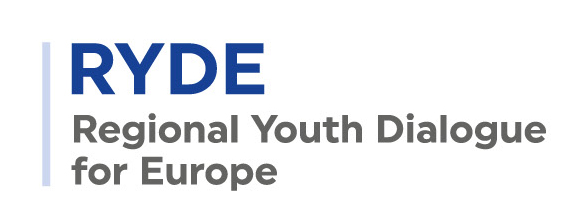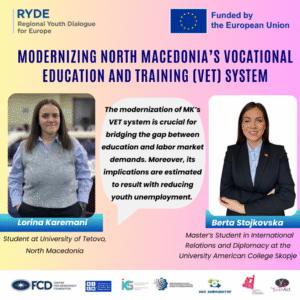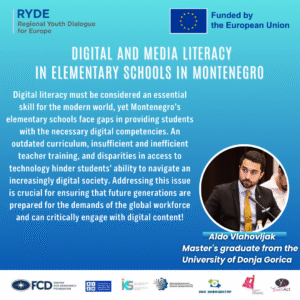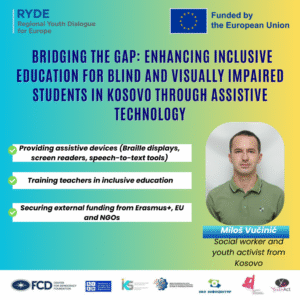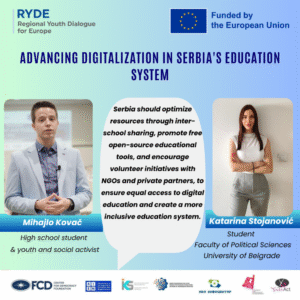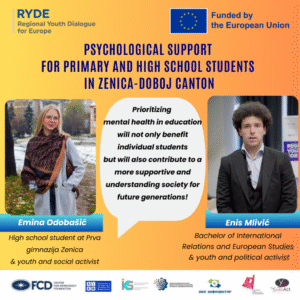‘People often say with pride, I’m not interested in politics. They might as well say, I’m not interested in my standard of living, my health, my job, my rights, my freedoms, my future or any future. If we mean to keep any control over our world and lives, we must be interested in politics.’’ Martha Gelhorn,
American Novelist, Writer, and Journalist
Introduction
While I was exploring the significance of the European elections, I came across this inspiring ‘call to action’ quote, which serves as a reminder that engagement in political processes is not merely an option but a necessity for those who wish to influence the decisions that affect our daily existence. Being one day away from the European Elections which will take place in 27 member states between 6-9 June 2024, it is crucial to recall the importance of political awareness and active participation for maintaining and enhancing the people’s spirit to stand up for the issues that affect their lives and their role in election processes.
In a recent interview for The Economist, President Macron warned that Europe faces immediate threats deriving from external and internal factors. Because these elections come at a time when the Union is battling multiple challenges, including the conflict in Ukraine, rising inflation, defense and security and the enlargement project, we have our eyes wide open to see what the future holds for Europe. Reflecting on the lessons from the previous elections, understanding European political groups’ key priorities and manifestos, exploring the engagement of youth in the next European Parliament, and assessing the impact social media is playing in increasing youth voter turnout, are the main topics this blog aims to cover.
Lessons from the previous European Elections
After declining ever since the first European elections in 1979, the voter turnout for the 2019 European elections was marked at 50.6%, the highest since 1994 and a significant rise from 42.6% in 2014 Eurobarometer. This increase occurred in 19 Member States, with notable rises in Poland, Romania, Spain, Austria, Hungary, and Germany, as well as significant increases in Slovakia and Czech Republic, where turnout had previously been low. Despite this overall increase, turnout dropped slightly (by no more than 3%) in eight countries. As per the youth participation in the 2019 elections, the post-election Eurobarometer showed also that the boost in participation was predominantly driven by younger voters, particularly those under 25 and those aged 25 to 39 years old. This phenomenon came as a result of effective engagement strategies such as local volunteering and partnerships entered into with organizations like the European Youth Parliament and the Federation of Young European Greenswhich used non-formal education methods to increase awareness and participation of young people in those elections. Building on this, it is important to highlight that the voters in 2019 were better informed compared to 2014, and both voters and non-voters expressed a higher level of political interest, suggesting a solid foundation for further increasing voter turnout in future elections. Social media platforms were also considered as an essential tool that contributed to this increase. Specifically, this surge is attributed to parliamentary campaigns on platforms such as Snapchat. Given TikTok’s significant Gen-Z users, it could also play a crucial role in future elections. Recently, Ifop poll conducted in April, indicated that around one-third of young people use a specific application to keep up with election campaigns.
Also, the 2019 elections taught us that Eastern and Western Europe are significantly divided, raising concerns for the future of Europe. While Western Europe largely voted for change, the strong support for right-wing populists in Eastern countries like Hungary and Poland suggested these nations have a different vision of Europe compared to other EU members. This divergence could slow down the progress in European integration across various critical areas, including security cooperation, coping with mass migration, enlargement & institutional reforms of the EU. Moreover, the topics of the Eastern Partnership and enlargement to the Western Balkans were notably absent from the election campaigns. Probably, the lack of campaign discussion on these issues might stem from their low appeal to voters or a strategic choice to avoid empowering far-right populist factions.
In terms of promoting democratic elections, the 2019 European Parliament elections marked a significant moment, signaling a demand from voters for greater transparency and influence. The elections saw a slight dominance of Liberals and Greens, suggesting that if these groups can promote more accountable governance and greater public engagement, Europe could navigate through its current challenges more robustly(Heinrich Boll Stiftung)However, as in the previous two European elections, all eyes will be on the far right, which is expected to be the big winner this year. According to the poll’s projections, far-right parties are topping the polls in key European countries like France, Italy, Hungary, Netherlands, and Poland, and influencing EU politics even from their national perspectives.(Politico)
How are European Parliamentary group’s manifestos attracting young people to vote?
Political parties are also recognizing the importance of appealing to younger voters and integrating young candidates into their ranks. Many parliamentary groups push for improvements on issues young people find the most urgent, such as climate change, working conditions, democracy, and representation of marginalized groups. For instance, many parties with anti-immigrant agendas are receiving noticeable support from first-time young voters in the upcoming European Parliament elections.
Recent analyses on political preferences indicate that in several EU member states (Belgium, France, Portugal, Germany, and Finland) young people are supporting anti-immigration and anti-establishment parties as much as, or even more than, older voters. In the Netherlands, the far-right Freedom Party secured victory in the 2023 election by orienting the focus towards affordable housing to immigration restrictions, issues that help them resonate strongly with young voters. (Politico). One of the young voters, Gerald, 24, was clear about his decision in the last weeks of the Dutch election stating for The Guardian:
“I voted for Wilders, and many of my friends did too,” he said. “I don’t want to live with my parents for ever. I want my own home, and to be able to provide for my family later. Wilders wants to figure out the housing crisis and make our healthcare better. Those are the most important topics for me.’’
Similarly, in Portugal, the far-right party Chega took advantage of the frustrations of young people regarding the housing crisis and other quality of life issues. André Azevedo Alves, a political scientist at the Catholic University of Portugal and St Mary’s University in London, explained for Politico that Chega, has successfully tapped into the frustrations of Portuguese youth regarding quality of life issues such as the housing crisis and lack of well-paying jobs. This dissatisfaction is further fueled by anger towards mainstream parties that have failed to address these challenges. “Chega’s leader, André Ventura, leveraged this discontent, portraying the Socialist Party and the center-right Social Democratic Party as the cause of the country’s problems and the stagnation that has driven many young Portuguese to emigrate,” he said. “He has attracted many supporters by presenting Chega as an anti-establishment party ready to challenge the system.”
If extremist or far-right groups were to gain significant influence in the upcoming elections, in the long run, it could have profound implications for candidate countries (including Albania), potentially affecting their EU integration prospects and their standing within the broader European political landscape. The stance of these groups on issues like immigration, national sovereignty, the European Enlargement project, and EU regulations could significantly negatively impact Western Balkan’s Integration Process. Most Radical Parties view enlargement critically, considering it costly and potentially leading to increased migration. In addition to their general skepticism toward enlargement, radical-right parties often endorse raising historical grievances and identity issues during EU accession negotiations. Their attempts to use EU enlargement to extract concessions from candidate countries have become one of the biggest obstacles to advancing the process. Even though far rights lack an essential schism over enlargement, the mainstrem parties must buy into the enlargement discourse and preach it with conviction to their citizens while supporting a merit-based enlargement process.(Balkaninsights)
Youth Quota
Political parties have been the primary vehicle for political engagement and representation in Europe for over a hundred years. However, there’s an increasing disconnect between political parties and the youth, highlighted by a significant decrease in party membership over the past two decades in Europe, only about 2% of young people are members of any political party.
A study of the European Parliament suggests that this growing skepticism towards parties stems from their failure to facilitate young people’s political involvement. Such low membership rates among youth now indicate too that party affiliation is no longer a reliable measure of political engagement. Today, the average age of Members of the European Parliament (MEPs) is 50, with national averages ranging from 44 to 60. Denmark boasts the youngest MEP, who was 21 at the time of the election, whereas in other countries, the youngest MEP is at least 30 years old. This noticeable disparity between the proportion of MEPs under 35 and the general population of Europeans in the same age group suggests a lack of descriptive representation, which carries significant implications for policymaking.
Just one day ahead from the next European elections, only two Members of the European Parliament (MEPs) are still under 30 which comprises only 0.28% of all MEPs. For the 2024 European Parliament elections, there are several young candidates actively participating, although exact numbers are not specified, as Euronews reports. European Greens are prioritizing young candidates under the age of 35, by placing them in electable positions to ensure their representation in the 2024 European Parliament.
On one hand The European Parliament through its Resolution 2015/2035(INL) has urged EU member states to take proactive steps to improve the representation of underrepresented groups at the supranational level. A proposed solution to ensure young people’s interests are better represented in European political arenas is the introduction of youth quotas in the European Parliament. These quotas address the underrepresentation of the younger generation by setting a flexible target percentage for MEPs under the age of 35. On the other hand, such an initiative is also requested from various groups, including the Youth for European people’s Party (YEPP). YEPP, along with other youth organizations and political groups, have been actively advocating for these quotas to address the underrepresentation of young people in the Parliament.
There is no doubt that to meet the challenges young people are facing today, we need to see more young candidates and youth representation in electoral lists which should not be a symbolic effort of filling a quota. Addressing the underrepresentation of young Europeans through the adoption of youth quotas and lowering the age to stand as a candidate may be a key impediment to young people’s participation. Instead, many European member states have lowered the age of voting. For the first time, German and Belgian 16 year olds will join young people from Malta and Austria to vote in the upcoming elections. This is great news for youth participation, but it results in discrimination for other 16-year-old Europeans who are not allowed to vote. This leads to decreased involvement of young people due to a lack of ownership over decisions and the decision-making process.
Social media as a mean to boost youth engagement in European Elections
In recent years, foreign governments have increasingly utilized social media and the internet to influence elections worldwide. A 2023 study by the European Parliament found that young people remain actively engaged in politics, often through diverse methods, with social media being their preferred medium. This platform allows them to quickly mobilize large numbers of people across borders and stay informed about political and current events relevant to them.
For the 2024 elections, the European Parliament is adopting various strategies to engage young voters, emphasizing the importance of digital platforms. The ‘Play your part, Europe’ campaign is streamed via Spotify to notify and remind all users over 18 about the EU election. Spotify has previously launched voting campaigns before elections. The Swedish company issued similar notifications for local elections in the United Kingdom, as well as for elections in Sweden, the Netherlands, and the United States.
According to Eurostat, TikTok has become popular in Europe, often serving as a constant news source against its competitors like X, Facebook, Instagram, YouTube, and Snapchat. The European far-right effectively utilizes platforms like TikTok to reach out to young voters, engaging content and utilising the platforms’ algorithms to maximize reach, especially among those who may feel disillusioned with traditional politics (Politico).
Renew Europe group, heavily utilizes Instagram and Snapchat to connect with young voters. They focus on liberal values like individual freedom, digital transformation, and European integration, using engaging visuals and quick, impactful stories. The European People’s Party also employs robust strategies, particularly in digital campaigning and educational content.
The Greens/European Free Alliance often stands out in effectively engaging young voters through Instagram and X. Their focus on pressing global issues including climate change, environmental sustainability, and social justice, are the issues that resonate strongly with many young Europeans today.
Being aware of the hard efforts needed to enhance youth participation in electoral politics, it is crucial to remember that young people are the key to bridging this gap. As a Young European Ambassador from the Western Balkans, I am well aware of the consequences of undermining the political systems’ representativeness and the resistance of young people to vote. I believe that one way to approach youngsters in political life is by encouraging youth activism which is less practiced by them, such as signing petitions, participating in legal demonstrations, and engaging in unofficial strikes. Additionally, advocating for the implementation of youth quotas in political institutions, like parliaments, is another strategy that young people should persistently pursue in their countries to increase their visibility and influence in decision-making bodies.
In the spirit of Martha Gelhorn’s call to action, I would prefer to embrace the European Parliament’s compelling appeal from the video, “Use your vote.” and encourage Young Europeans to voice the concerns of the European Youth generation, thus determining the direction of Europe by voting!
About the Author
Xhuljana Mucaj graduated from the University of Sheffield in the United Kingdom, obtaining a Master of Laws as a recipient of the prestigious Chevening Scholarship. This achievement adds to her previous successes, including a Law Degree from the University of Tirana and a degree in Business Administration from the Canadian Institute of Technology. As a Young European Ambassador, Xhuljana has considered this platform to champion EU values and advocate for the rule of law, democracy, and the integrity of public institutions. Noteworthy among her initiatives is the #IDECIDE awareness campaign, which aimed to raise awareness about the importance of free and fair elections while constantly opposing the culture of the vote-buying phenomenon. Xhuljana is eagerly committed to supporting vulnerable youth in rural areas and proposing substantial instruments that secure their presence in decision-making bodies.
*This publication was funded by the European Union. Its contents are the sole responsibility of the Academy of European Integrations and Negotiations and do not necessarily reflect the views of the European Union.
